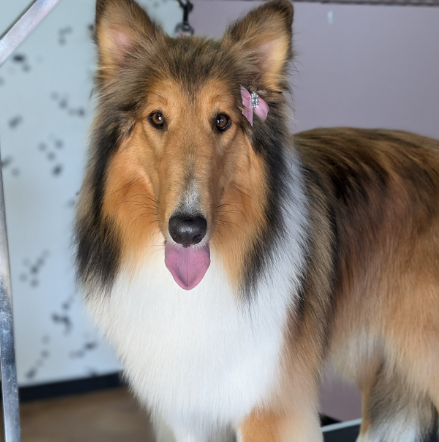A new Georgia law set to take effect this summer is reshaping how pets are bought, sold, and — more importantly — saved across the state.
Governor Brian Kemp signed House Bill 331 last week, prohibiting pet sales in parking lots, roadside stands, parks, sidewalks, and other public spaces. Starting July 1, dogs, cats, and other animals will no longer be sold legally in these places — a practice that, until now, has operated largely without oversight.
A Law With Teeth Aimed at Ending Abuse
The bill targets a major issue that’s been hiding in plain sight for years: unregulated pet sales out of car trunks, crates, or cardboard boxes along Georgia roadsides. Lawmakers believe this law will strike at the heart of the state’s ongoing battle with puppy mills.
Animal advocates couldn’t be happier.
“This is about stopping the cycle of abuse,” said Laura Donahue of the Best Friends Animal Society. “We’re talking about animals being bred in miserable conditions, shoved into crates, and sold without medical care, records, or accountability. This bill gives those animals a voice.”
Supporters say it’s not just about protecting animals — it’s about changing how Georgians view pet ownership in general. And shelters, many of which are stretched thin, may soon see some much-needed relief.
A Shift That Could Save Thousands of Shelter Pets
Warner Robins Animal Control currently holds around 70 dogs and 15 cats. It’s not the worst the shelter has seen, but it’s far from comfortable.
Greg Langston, who runs the shelter, says HB 331 might ease the load. Fewer pets sold out of trunks means more adoptions, and fewer abandoned or returned animals later.

“It’d be less animals coming through our doors,” Langston said simply. “It’s a good thing.”
There’s a common misconception that animals sold on the street are cheaper or somehow better. But animal advocates argue they often come with hidden costs — vet bills, behavioral issues, and in some tragic cases, heartbreak.
Shelters screen for health issues, provide vaccinations, spay or neuter, and ensure pets are going to stable homes. Private sellers outside grocery stores? Not so much.
From the Streets to the Shelters — A Public Attitude Shift
Claurice Ordaz, a Macon resident, was looking for a new furry companion when she stopped by Warner Robins Animal Control last week. The news of the new law gave her confidence in her decision to adopt.
“I’d rather take a dog from here and make space so they can help other animals,” she said.
Ordaz isn’t alone. In fact, according to the ASPCA, 23% of pet dogs in the U.S. are adopted from shelters, while roughly 6% come from strays or individuals selling animals — many without proper records or health checks.
The hope is that laws like Georgia’s new HB 331 will tip the balance further.
-
Roughly 6.3 million companion animals enter shelters every year in the U.S.
-
About 920,000 of them are euthanized due to overcrowding and lack of adoption
-
Advocates say more adoptions and fewer street sales can drastically change those numbers
Where the Law Applies — and Where It Doesn’t
Violators can face fines, penalties, or even misdemeanor charges under certain circumstances, depending on local ordinances.
It’s a step many other states have taken already. California, for example, has banned the sale of commercially bred pets in pet stores since 2019. Florida has cracked down on street-side animal sales, too. Georgia’s law aligns it with a growing national trend.
Critics Raise Concerns — But Public Support Is Strong
As with any law, not everyone’s thrilled. Some small-time breeders and backyard sellers argue the bill punishes honest people trying to make ends meet. Others worry about enforcement.
But public reaction has been largely supportive.
“Pets aren’t products. They’re lives,” said Michelle Barron, a volunteer at an Atlanta shelter. “This law treats them like they matter, and that’s huge.”
Animal control officers will now have greater authority to investigate illegal pet sales and intervene before animals are harmed or displaced. And that matters — because each cage that stays empty in a shelter means one more pet found a real home.
Eyes on the Future, and a Lot More Wagging Tails
For the thousands of pets waiting behind kennel doors, Georgia’s new law might be more than policy. It might be their ticket home.
Whether it’s a scruffy terrier in Macon, a tabby cat in Augusta, or a husky mix in Savannah — every adoption counts. And for Georgians like Claurice Ordaz, the choice has never been clearer.
